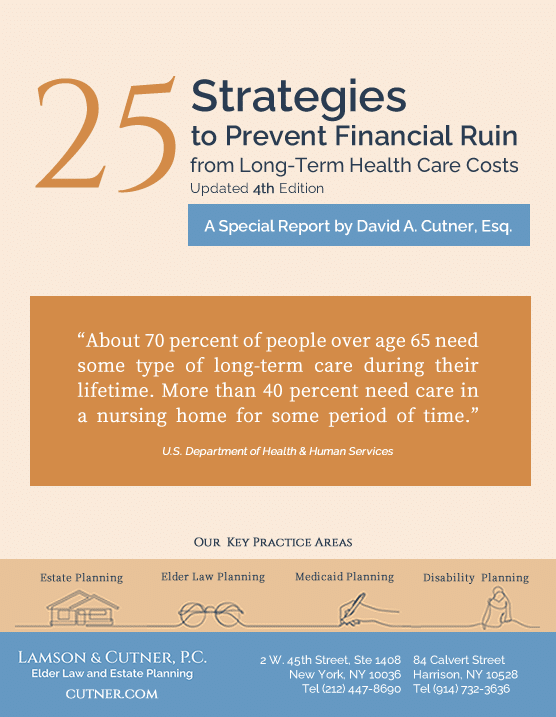Many people understandably have a difficult time deciding when it is appropriate to put a parent or other family member in a nursing home, and then choosing which home is best.
Other professionals, such as geriatric care managers or social workers, may be better placed than lawyers to guide clients on these questions, but, as Elder Law attorneys, we believe that we can make some helpful suggestions.
Anyone who still has mental capacity probably does not want to go into a nursing home. It’s human nature. People want to be at home, in familiar surroundings. However, there may come a time when it is no longer a good choice, or even tenable, to stay at home. Some people, due to loss of physical capacity, become virtual prisoners in their own homes, and then lose the possibility of any social interaction. For them, a nursing home opens up opportunities for new friendships and social activities.
Other people, due to physical or mental issues, may no longer be safe in the home environment, even if they have aides to help them. They simply need skilled care, in a nursing home.
Sometimes it is important for children to recognize that the time has come to put mom or dad in a nursing home, even though this decision seems to be against mom or dad’s wishes. Feelings of guilt are hard to overcome, and it is a difficult decision under almost any circumstances. However, mom or dad’s desire to remain at home was probably expressed at a time when they still had the capacity to live independently. When circumstances change, it may not make any sense to try to stick to a plan that just won’t work anymore.
Once the decision is made to seek nursing home care, the question becomes: which home? This is a very personal decision, and the “best home” for one person may not be a good choice for another person.
Here are some guidelines:
- Geography is often an important factor. Choosing a home that is convenient for visitation can be meaningful. If it is easy to stop by the nursing home for a visit, friends and family will come more often.
- A private room is usually of little or no importance to the patient. Often family members feel better if their relative is in a private room, but the patient may in fact prefer the company of a "roommate," and will enjoy visits from the roommate’s family and friends as well as his or her own visitors.
- If the patient is or will be on Medicaid, the cost of the home should not be a consideration. Medicaid negotiates a special rate that is typically far below the private pay rate in any home that you may choose. Virtually every nursing home in New York accepts Medicaid.
- If you find that you don’t like the nursing home that you selected, you can move to another home. If there is a bed available in the home that you prefer, you should not have any trouble in making the change.
- Although all homes are non-sectarian, some have a look or feeling that is tied to a particular religion. Some patients may feel more comfortable in a “Catholic” or “Jewish” or “Methodist” home, etc., depending on their religious sensibilities.
- Take the time to visit a few homes before making a final decision. Every home has an individual atmosphere and feeling about it. There is no substitute for a personal visit.
Moving a parent, friend, or other family member into a nursing home takes an emotional toll. At the same time, most of our clients report a great sense of relief when the decision is finally made.


